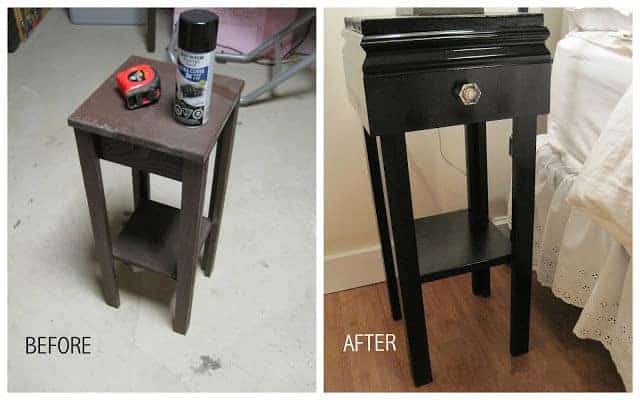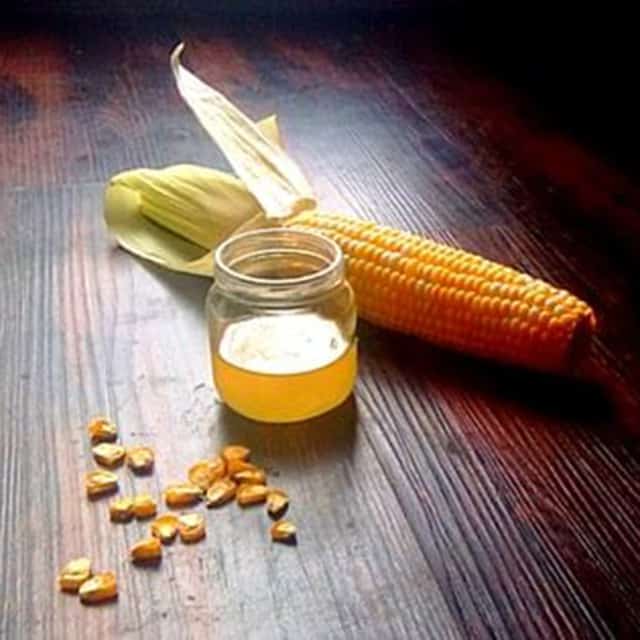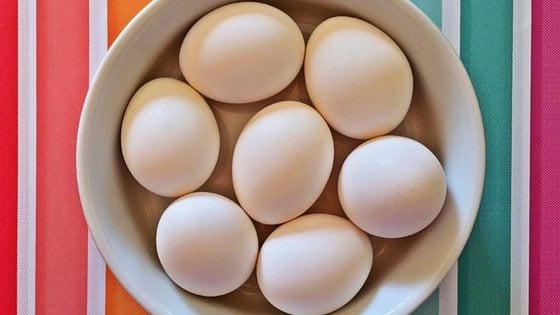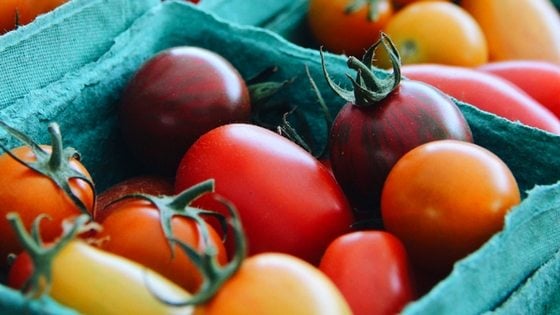Table of Contents (Quickly Jump To Information)
If you use essential oils in your home, you can also use them to rid your garden of unwanted pests that will try to steal your harvest.
At least, that’s what we do.
Nothing is more frustrating than to spend lots of time and energy trying to grow cabbages than to go out to your garden….only to find leaves full of holes and sprinkled with tiny green cabbage looper eggs. Grrr…..
Oils are great to use in your garden because they’re organic, all-natural, and they WORK.
Particularly if you make a homemade insecticidal soap, you only need a drop or two – so they’re also economical.
Most basic essential oils cost $0.08 a drop, so you can spend a lot of money on commercial organic pest control….or you can save a few bucks and make them yourself.
In this article, I’m going to show you how to use essential oils to deter and get rid of bugs, freeloading insects, and vegetable munchers in your garden.
A Word About Purity
Before we get started, let’s talk about purity for a minute. Everyone has their own favorite brand of oils – so we won’t cover particular brands in this article.
However, I advise buying from the manufacturer directly, and not from a 3rd party source like Amazon. It’s very, very easy to pop the top off oils and replace them with an inferior essential oil – or something that doesn’t even resemble an oil, but smells like the real deal.
The last thing you want is to spend a lot of time and effort growing your garden, only to dump a bunch of toxins on them unwittingly.
Bottom line: Buy from a trusted source, just be sure the oil is pure, and the oil in the bottle is as advertised.
Ok, moving on….
How Do You Know Which Essential Oil To Use?
If you’re new to oils, or aren’t sure which one will most benefit your garden, determine which pests are bothering your garden.
Then, using the chart below, figure out which oil will best repel them.
If more than one pest threatens your plant, or in insect AND a fungus are causing trouble, then it’s perfectly fine to add more than one oil to water, to a rag, or to a container.
What Are The Go-to Oils?
There are a few essential oils that are go-to oils that will work against MOST garden pests. They interfere with your pesky visitor’s biological systems (each oil effects a different part of the insect’s body), causing them to leave the scene to save their lives.
Orange essential oil
If you want a go-to oil for killing insects, then orange is a good choice, since it works to destroy the exoskeletons of bugs.
Cedarwood essential oil
A second option is cedarwood, which is believed to interfere with their neurological capabilities.
Peppermint Essential Oil
If you don’t yet have pests in your garden or just want to deter them, then peppermint oil is a good option. It’s strong smelling, and garden pests will turn around and find an easier target for a snack.
| Pest | Repelled By |
| Ants | Peppermint, Spearmint, Wild Orange, Cedarwood |
| Aphids | Peppermint, Spearmint, Cedarwood, Wild Orange |
| Beetles | Peppermint, Thyme, Wild Orange, Cedarwood |
| Caterpillars | Rosemary, Cedarwood |
| Cutworms | Thyme, Clary Sage, Cedarwood |
| Fleas | Lavender, Lemongrass, Peppermint, Wild Orange, Rosemary, Cedarwood |
| Fungus (e.g. Powdery Mildew) | Melaleuca, Wild Orange |
| Lice | Peppermint, Spearmint, Cedarwood |
| Rabbits, Mice | Peppermint |
| Slugs/Snails | Cedarwood, Douglas Fir, Peppermint |
| Squash Bugs | Peppermint, Wild Orange, Cedarwood |
Insecticidal Soap
Commercial insecticidal soaps work by dissolving the hard external bodies of insects, and you can make your own at home with liquid castile soap and orange essential oil.
These soaps are effective against aphids, thrips, mites, immature leafhoppers, and whiteflies. Just remember that insecticidal soap is only effective if they come in contact with the insects while the soap is still liquid; it won’t work after it dries on the plants.
To make your own, combine 5 tablespoons of pure castile liquid soap to 2 quarts of water. Add 5-6 drops of orange and cedarwood essential oils. Combine thoroughly and use immediately.
Maat van Uitert is a backyard chicken and sustainable living expert. She is also the author of Chickens: Naturally Raising A Sustainable Flock, which was a best seller in it’s Amazon category. Maat has been featured on NBC, CBS, AOL Finance, Community Chickens, the Huffington Post, Chickens magazine, Backyard Poultry, and Countryside Magazine. She lives on her farm in Southeast Missouri with her husband, two children, and about a million chickens and ducks. You can follow Maat on Facebook here and Instagram here.

![What The Veterinary Feed Directive Means & How I’m Preparing [Video]](https://thefrugalchicken.com/wp-content/uploads/2016/12/veterinarian-feed-directive.jpg)




